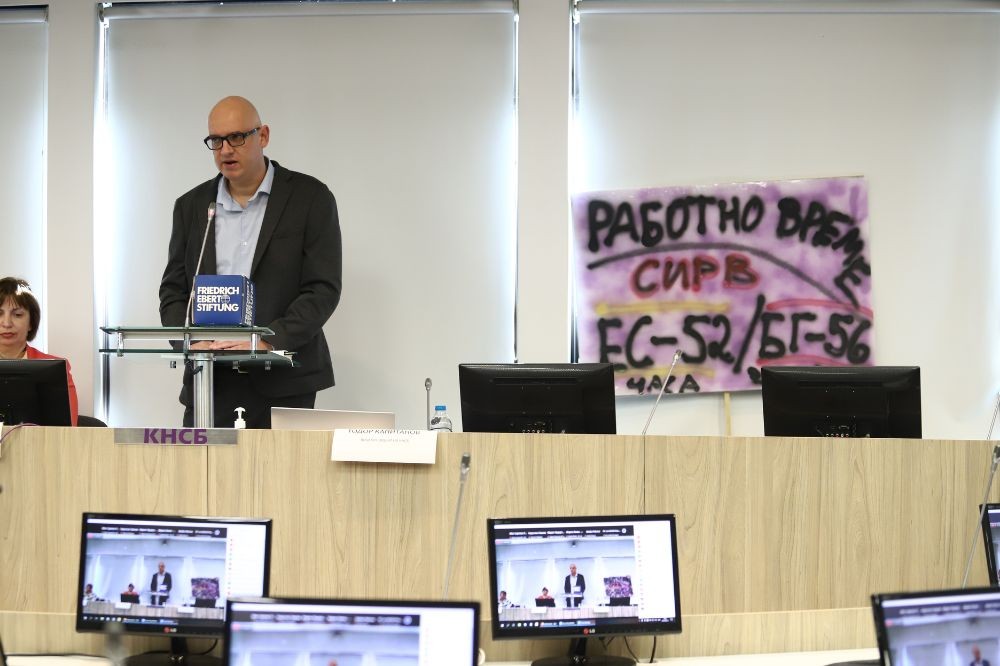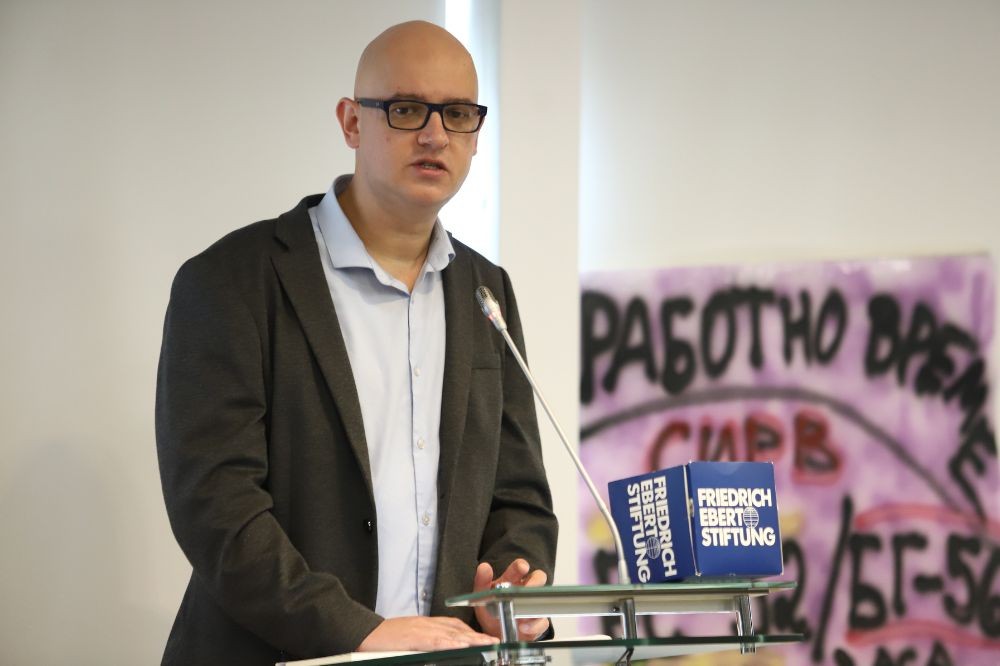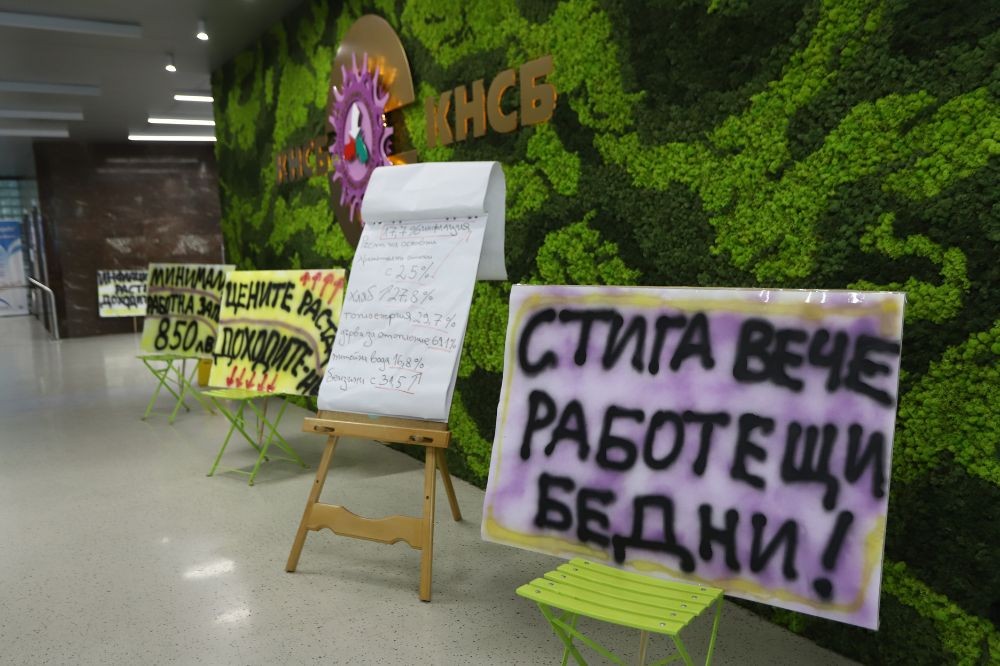The largest trade union in Bulgaria (CITUB), whose members number about 300,000 people, mobilized forces and started a protest campaign demanding that the state update the budget with 70 million euros. The aim is to protect people's incomes so that they are compensated at least as much as the rise in inflation. According to a trade union survey in the country, 80% of workers say that there is an increase in their wages, but it is between 5 and 15%, and currently inflation exceeds 18%, which extremely threatens people's living standards and they are forced to reduce their daily consumption.

Two weeks before the next parliamentary elections in the country, CITUB president Plamen Dimitrov and trade union leaders organized a series of meetings with leaders of the political parties with the highest chances of entering the next parliament. Each of them will be familiar with the CITUB Memorandum on the socio-economic development of the country in the next 4 years. Among the main demands of the trade union is the 2023 budget, which should include 600 million euros more for salaries in the public sector. The question was put before the caretaker Prime Minister Galab Donev, who promised that he would talk to the Minister of Finance and options would be sought. The caretaker prime minister has expressed the positive attitude of the government on the issues related to the commitments under the Recovery and Resilience Plan, namely the liberalization of household electricity from January next year and a 40% reduction in emissions from enterprises in the energy sector.
In addition to increasing incomes, the national protest campaign of the trade unions also demands a specific change in the legislation, so that the right of workers to rest is respected. It is specifically about the total calculation of working time. This is a special working regime that allows the normal duration of the 8-hour working day to be extended to a 12-hour working day, including work on Saturdays and Sundays, depending on the distribution of people by structures.
"The problem is that in Bulgaria the cumulative calculation of working hours is applied in absolutely all enterprises and even in some institutions, and according to European legislation it should be applied only in productions with an uninterrupted working mode," Dr. Todor Kapitanov, a labour legislation expert at CITUB, explains.

"The European legislation states that the total calculation of the working week is a maximum of 52 hours, and in Bulgaria it is permissible for it to be 56 hours. Everything is at the expense of the worker's rest and recovery and at the expense of their personal and family life. This is one of the loopholes through which ill-intentioned employers abuse employees, because people sometimes work not only 12, but up to 14-16 hours. This is one of the most common violations related to working time, because it is not recorded correctly. There is some documentation, but what it is in practice is another matter, and this is quite worrying because the workers have been suffering such a violation for over 20 years. In addition to working the most hours in Europe, Bulgarians are also the worst paid. This is one of the biggest gaps in the Labour Code, which urgently needs to be corrected."

The question of the cumulative calculation of working hours has been raised more than once by the trade unions. Two years ago, CITUB and Podkrepa Confederation of Labour held a big campaign with 100,000 signatures, which were submitted to the Ministry of Labour and Social Policy. The request was for the right to reconsider and create a regulation on this issue. The working group refused to give an opinion on why the Bulgarian regulation is not in sync with the European legislation, Todor Kapitanov recalls. This made the two trade unions – CITUB and Podkrepa, leave this working group as a sign of protest that such an important issue affecting thousands of workers cannot be ignored. Now it is again on the agenda among the protest demands of the trade unions.
Photos: Gergana Mancheva, pixabay, BGNESDuring rescue excavations in the western necropolis of the ancient city of Heraclea Sintica near the village of Rupite, archaeologists unearthed a unique find: a finely carved marble face . The discovery was made at a grave that was likely looted..
The 10th anniversary edition of the Raspberry Festival was officially opened on July 11 in the town of Samokov. The event continues on Saturday, July 12. Over the years, the festival has estalbished itself as an symbol of the region and a platform for..
As part of the Varna Summer Music Fest tonight, five virtuoso Bulgarian musicians will present the Balkan Moods project in Varna, combining classical, jazz and folk music. The group comprises renowned kaval player Theodosii Spassov, Atanas..
During rescue excavations in the western necropolis of the ancient city of Heraclea Sintica near the village of Rupite, archaeologists unearthed a..

+359 2 9336 661
